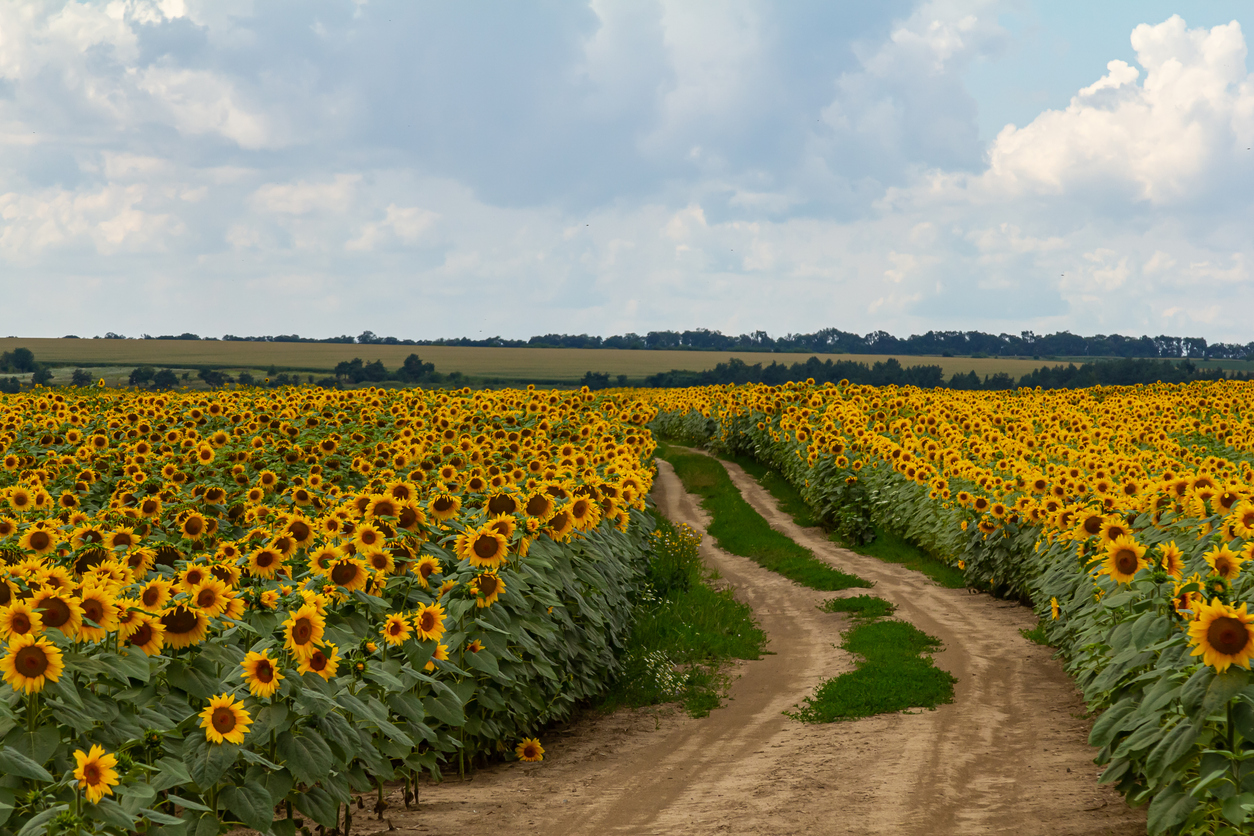
Edison Agrosciences is using sunflowers as a source for natural rubber. The company initially dabbled in genetic modification to increase rubber content in plants but has since moved away from that approach towards breeding.
“We’ve proven out that the rubber accumulation is actually influenced by genetics, which means that we can breed for it,” says Woodburn.
Sunflowers, whose leaves naturally contain 1 – 2% of their weight in natural rubber, are already grown on about 1 million acres in the United States, and many more worldwide. There are, he says, “surprise levels of rubber, both on the high end and low end across different varieties.”
“Farmers know how to grow it, there’s a seed industry around it, there’s crop protection in place. So the problem became how to produce more rubber in the sunflower instead of how to get growers to adopt something new.”
An ‘extremely lean and capital efficient’ company
The new funding will partly help scale operations. This will enable Edison to produce the quantities of rubber needed to work with industry partners as well as conduct physical and mechanical testing.
Funding will also support further development of Edison’s breeding program.
“We continue to run diversity trials, exploratory trials, to find new genetic lines for sunflower and enter that information into the model. Then we make those crosses and continue development of those to get higher and higher levels of rubber [in the sunflower plants].”
Woodburn says that while $600,000 wouldn’t be much for some companies, “we’ve structured Edison Agrosciences to be extremely lean and capital efficient,” adding that they’ve run the company for the last four years on roughly $100,000 in investor equity.

Previous funding has come from the US Department of Defense and the Wells Fargo Innovation Incubator. The $600,000 close of this round was higher than the company was actually targeting.
“It’s not a big number for most companies. For us. It actually goes a long ways.”
The funding coincides with the appointment of rubber industry veteran Tom Marsh to Edison’s Board of Directors. Marsh has held a number of executive roles in companies within the rubber supply chain.
“He’s basically spent his entire his entire career in the rubber industry,” says Woodburn, who adds that March is “known for being passionate about ‘onshoring’ the supply of natural rubber.”
Meeting demand for sustainable rubber
The biggest challenge at the moment for the company is generating demand for a product that essentially solves a future need, not a current one.
“The South American leaf blight hasn’t hit Southeast Asia yet, so it’s not a problem today,” says Woodburn. “For the most part, there’s plenty of rubber available, but the industry definitely recognizes is that [the blight is] a serious, serious problem.”
All the same, a company solving for tomorrow, without an immediate market, usually winds up on the shelf, he says. To avoid that, Edison Agrosciences is targeting “more specialty applications that have higher pricing and are clearly lower volume” before eventually moving on to commodity rubber.
On the demand front, the company’s sustainability angle may help. Natural rubber from Southeast Asia and other tropical climates comes with deforestation issues. Synthetic rubber derived from petrochemicals is associated with energy-intensive processes and hazardous waste streams.
Meanwhile, corporations using rubber (e.g., tire companies) have the same ambitious public climate commitments as those in other industries. Woodburn says major tire companies like Michelin and Goodyear have pledges to make their tires from sustainable materials and processes by 2050.
“There’s all kinds of stuff blended into rubber, especially in tires. There are some compounds that actually aren’t so pleasant. What we would be able to do is replace some of those with sunflower rubber.”
In the footwear industry, for example, companies can afford to make a shoe sole out of natural rubber. “But there’s the other stuff that’s blended in that keeps them from saying it’s completely sustainable shoe. We may be able to help them out by replacing some of these synthetic materials.”






